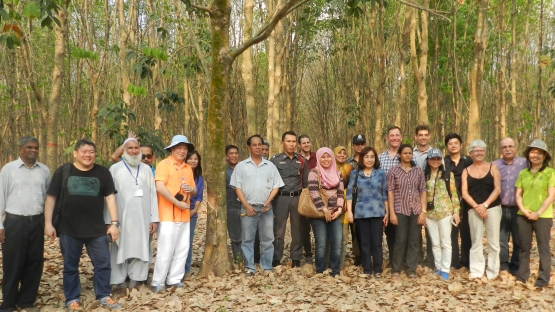The mid-term review meeting of the technical cooperation (TC) project[1], entitled "Promoting the sharing of Expertise and Infrastructure for Dengue Vector Surveillance towards Integration of the Sterile Insect Technique with Conventional control Methods among South and South East Asian Countries," was held in the Mahidol University, Bangkok, Thailand from February 9-13, 2015. Sixteen participants from eight countries (China, Indonesia, Malaysia, Pakistan, Philippines, Singapore, Sri Lanka and Thailand) as well four experts from four countries (Brazil, French Polynesia, Spain and Sweden) attended this meeting.
In South and South-East Asian countries, mosquito-borne diseases continue to be a major public health problem, putting more than 2 billion people at risk of contracting dengue fever. The control of mosquito populations has largely relied on insecticide-based approaches. However, due to the severe problems associated with the insecticides (their impact on human health and the environment, as well as the increased phenomena of insecticide resistance), novel and environment-friendly approaches are being considered for the population control of mosquito vector species, such as the sterile insect technique (SIT).
This IAEA TC project aims to transfer this technology to Member States. The mid-term review meeting highlighted the activities of the project performed during 2014, namely: studies on the biology and behaviour of the target species, the collection of baseline entomological data, as well as training on colonization and mass rearing of mosquito species, irradiation studies, transport and mass releases, monitoring and surveillance, and quality control at all stages of the sterile insect technique package.
Emphasis was given to dissemination activities and local public engagement programs. In addition, the work plan for 2015 was discussed and approved, and includes an agreement to hold a training course in Singapore, alongside fellowships and procurement for the participating Member States.


